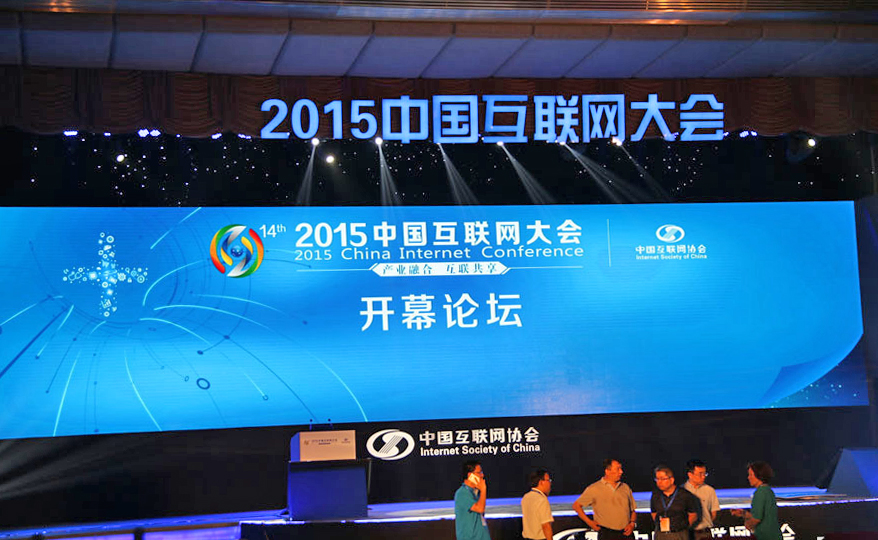'Internet Plus' injects vigor into economy through IT integration

The 14th China Internet Conference was held from July 21 to 23 in Beijing.
The central government’s new "Internet Plus" action plan will facilitate the integration of information technology and industry, scholars said at the 14th China Internet Conference, held from July 21 to 23.
Consisting of around 30 forums, the conference is the first to be held since the strategy was introduced and was mainly dedicated to elaborating on the significance of Internet Plus.
Promoting industrial integration
As of the end of June 2015, the number of Internet users in China had reached 668 million, accounting for 48.8 percent of the population, according to the 36th Statistical Report on Internet Development in China released by the China Internet Network Information Center on July 23. Of those, mobile Internet users numbered 594 million, or 88.9 percent of the total online population. This indicates that the Internet has not only became integral to social life but also sparked a revolution in productive forces.
In addition to e-commerce, finance and tourism, the Internet has also permeated other fields, including media, agriculture, manufacturing, education and healthcare.
“With the rise of ‘Internet Plus Technology,’ ‘Internet Plus Integration’ and ‘Internet Plus Innovation,’ traditional industries and the Internet industry should take advantage of the opportunity to make strategic choices,” said Lu Wei, secretary-general of the Internet Society of China.
Cao Shumin, president of the China Academy of Information and Communication Technology, said that the Internet will certainly bring great and even revolutionary changes to the industry. “Two significant government documents—the Guiding Opinions of the State Council on Actively Propelling the Internet Plus Action Plan and Made in China 2025—show that China emphasizes studying industrial networking from the perspectives of industry as well as the Internet, while the international practice for industry 4.0 only pays attention to the industrial perspective,” Cao said, adding that the Internet, bringing together billions of users and millions of enterprises, provides a platform for creating new operating models and patterns.
Entrepreneurship, innovation
In addition, the Internet will also present opportunities to promote entrepreneurship and innovation and serve as a comprehensive and strategic platform for creative makers, said Wu Hequan, a member of the China Engineering Academy.
Talking about the trends of mobile app development and creative activities of small and medium-sized enterprises, such as petty vendors on mobile terminals, Yu Xiaohui, chief engineer at the China Academy of Information and Communication Technology, said mobile Internet has set off the biggest wave of innovation since 2007 and China has grasped the critical moment.
“In the next five to10 years, mobile Internet will still be the most significant driving force in the field of information communication and rank first in terms of scale and growth rate,” Yu said. “And it will exert profound effects on all aspects of economic and social development as Internet Plus is widely implemented.”
Strengthening security, management
Lin Nianxiu, deputy director of the National Development and Reform Commission, said scientific management and normative systems are needed to safeguard Internet security and maintain fair competition in markets.
He said the implementation of Internet Plus requires strengthening online security, establishing standards and regulation, improving the credit system, and being rigorous in investigating and punishing unfair competition to cultivate a favorable environment for sustainable and sound development of the Internet industry.
Furthermore, many scholars said it is necessary to improve the infrastructure for broadband network services to achieve synergetic development in Internet and real economy.
To this end, various measures need to be taken, including improvements to laws and regulations on intellectual property and other Internet rights, incentives for venture capital financial support for emerging industries and increasing financing to key projects, they suggested.
Huo Wenqi is a reporter at the Chinese Social Sciences Today.
